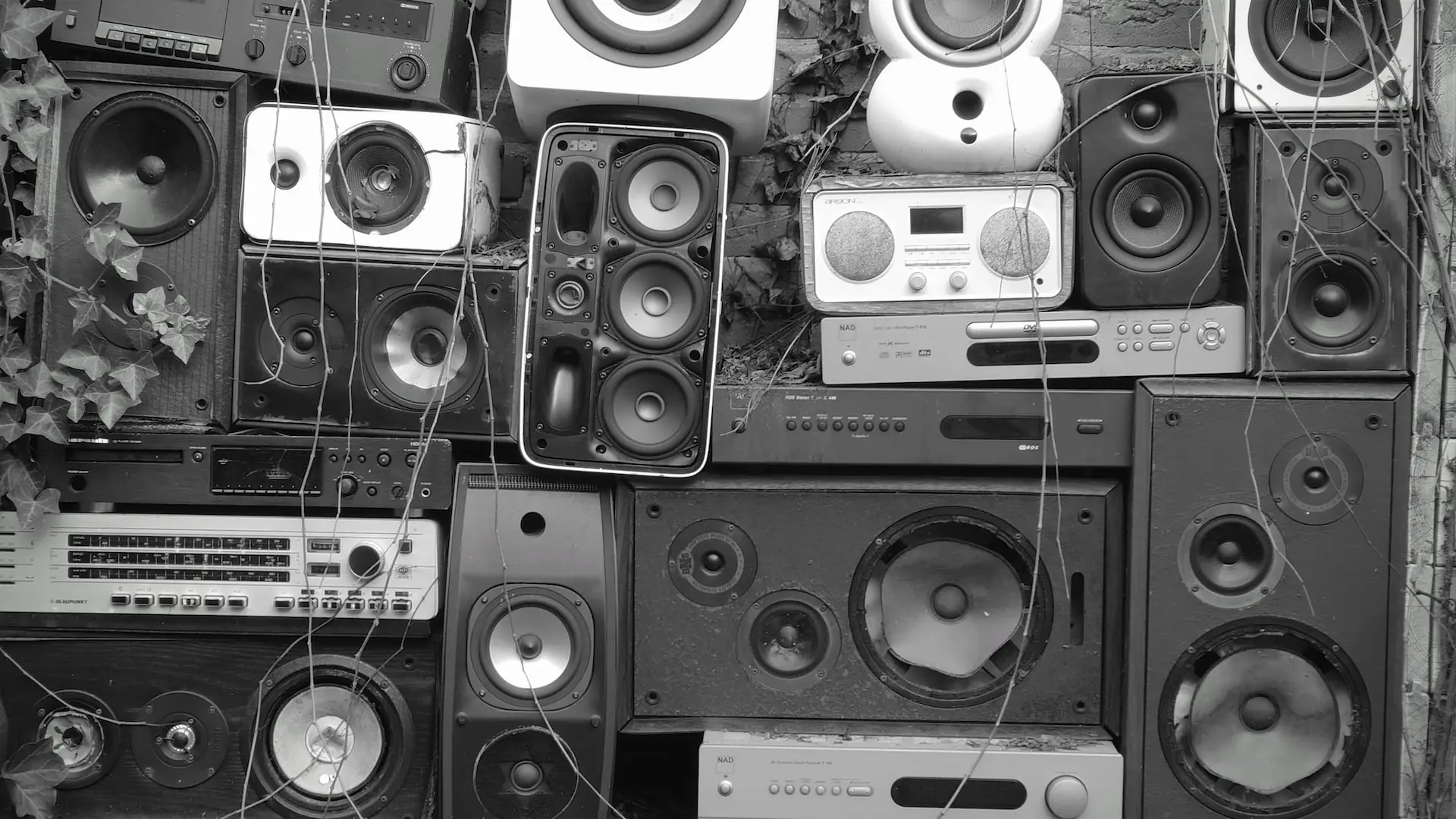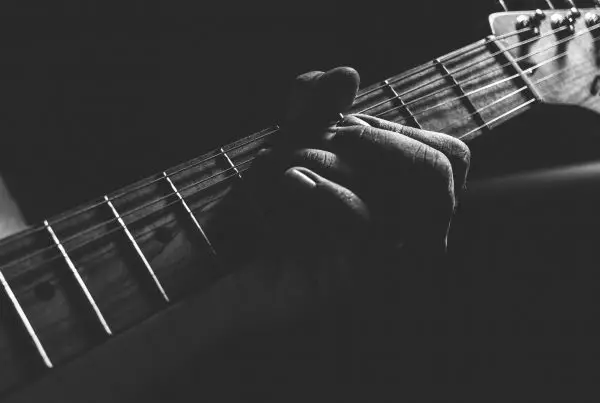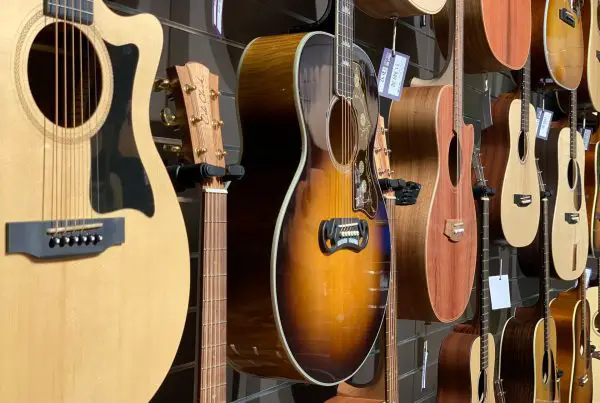A speaker cover will not have much impact on the sound made by your electric or guitar amplifier. The cloth mesh typical guitar amplifier speaker is insufficient to prevent interference from the speakers’ sounds.
That said, these speaker covers could sometimes come loose and cause rattling noises – which is a nuisance.
As someone who has played guitar and bass for over seven years, I understand the need to do everything possible to get the best sound and tone possible.
The mesh from your speaker covers does a great job of protecting your amplifier from dust and other long-term potential damage to the amplifier.
In this article, we will go over several details regarding the speaker grills, such as what the grills on a speaker do, how sound is affected, different types of amplifiers covers, and the pros and cons of each of them, if the grills will cause any damage or not, how to remove the grill, and if you should leave the grill on the speakers or not.
What Does the Grill Do on a Speaker?
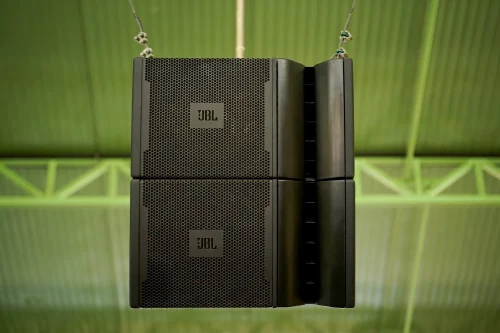
A speaker grill has numerous functions like protection from dust and UV ray.
A speaker grill has many functionalities such as:
- Protects the speakers from dust and other fine particles.
- Protects the driver element and speaker internals from damaging foreign objects while letting the sound pass through.
- Protects against UV rays from sunlight if the speaker is ever exposed to sunlight. Long-term exposure to sunlight can damage the speakers in your amplifier.
- Speaker grill covers are designed with cosmetic improvements in mind. Some guitar players will like how the amplifier looks with its cover on more than they like it with the cover off.
Do Speaker Grills Affect Sound?
The fabric on the speaker cover does very little to affect the sound the amplifier makes (assuming that it is stretched tightly and adequately as it should be). Please see the chart in this article for how sound travels through different types of materials.
While the fabric itself will not affect the tone, the thickness of the speaker cover frame can undoubtedly affect the sound.
Below is an example of a chart that shows the sound wavelengths of each frequency and the thickness of how many inches the wave can travel through:
*Hz stands for hertz. Herts refers to the cycle per second that the sound waveform travels in. The lower the cycles, the thicker the material that the wave can travel through.
| Frequency wavelength | Can travel through |
| 20hz | 678 inches |
| 100hz | 135 inches |
| 500hz | 21.1 inches |
| 1000hz | 13.5 inches |
| 2500hz | 5.4 inches |
| 10000hz | 1.3 inches |
The above chart shows that sounds at the 10000hz level will pass through 1.3 inches of material. It is doubtful that you will ever notice any interference of the sound from the grill itself (it is possible that the frame may interfere with the sound if it is not attached correctly or is loose).
In addition to the Hertz cycles (which measure the wavelength of the sound), there is also diffraction to consider. Diffraction is how sound is affected when it bumps into an obstacle (does it pass through the object, go around it, get absorbed by the sounds), etc.
The sound in your amplifier is influenced by the cabinets and how the sound bounces around inside them (i.e., its diffraction).
The cloth from the speaker mesh is not enough to cause diffraction. It is a cloth that will allow the sound to travel through it. Therefore, cloth speaker covers should have minimal effect on your speakers’ sound.
A solid speaker cover should not be so thick that it goes beyond 1.3 inches, so there should be little to no noticeable interference from the speaker cover.
However, if the solid cover is not secured correctly, it may vibrate, which will interfere with the sound from your amplifier.
Of course, not all speaker frame covers will be subject to blocking sound. However, you may not notice a slight difference from the frame that holds the speaker grill in place.
Assuming that these are the speaker covers that came with your amplifier, there should not be an issue with the speaker cover frames causing any problems with how your amplifier will sound.
Your amplifier and its speakers are affected by sound based on the environment that they are in, more so than the speaker covers.
Other things that can influence the sound are where the speaker is pointing, items in the environment that are around the amplifier that the sound can bounce off of (or how it will diffract around the different objects that are near the amplifier), and how far off the ground the amplifier is sitting.
Speaker Grilles On Or Off: Which Way Sounds Better? | Audioholics.
Speaker Grill: Pros & Cons (Do You Really Need It?)
There are three primary options for grills on speakers:
1. No Cover
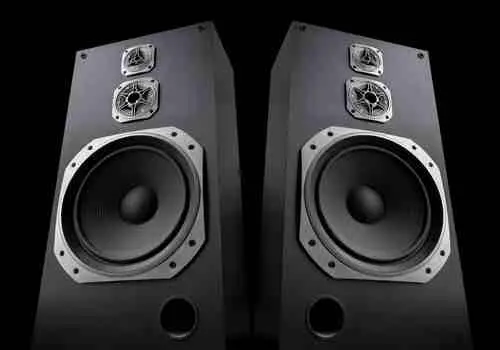
Speaker without cover
The first is to have no cover at all. This is typically seen in a studio setting to allow the speaker’s sound to have as little as possible blocking the sound waves.
One pro is that nothing is covering up any of the speakers’ sounds. This will make any sound it creates come through as clearly as possible.
However, the speaker is more prone to damages (especially from surrounding dust) or even accidental damages from humans.
2. Cloth Mesh Covering
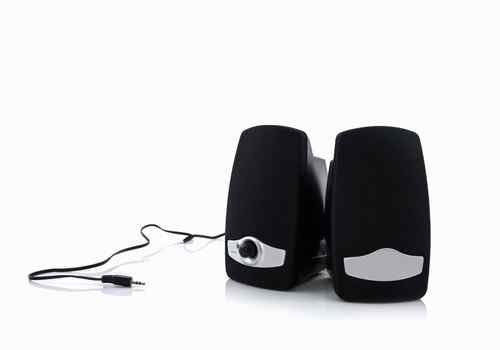
Speaker with cloth mesh
The second type of grill is a mesh cloth grill covering the speakers. However, the mesh grill does not negatively affect the sound from the amplifier, the frame of the grill or mesh covering the speaker could potentially negatively affect the sound tone. The grill itself does not.
Advantages of cloth mesh speaker cover:
- Protects speaker against fine dust particle
- The cloth mesh on the speaker cover of the amplifier will help stop things like UV rays from sunlight and dust from getting into the speakers.
- Cloth mesh will prevent things like a household pet, such as a small cat or dog, from getting into the speaker.
Disadvantage of cloth mesh speaker cover:
- Little protection from other types of damage, such as the amplifier being carried around, dropped, etc.
If you are traveling to play different kinds of gigs, then a more solid screen mesh may be better at protecting the speakers as they are carried around from your vehicle to the stage and back again. Solid speaker covers will do a better job at this.
3. Solid Grill Covering
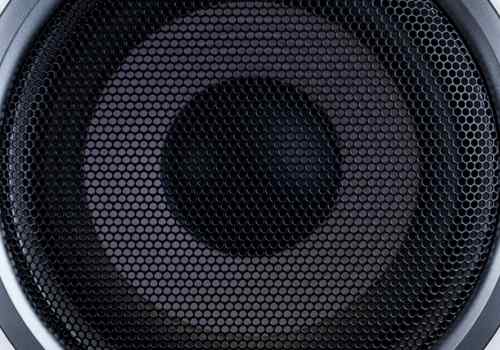
Speaker with solid grill
The third type of grill on a speaker is a more solid one made of wood or metal with holes cut and drilled into them. These are typically seen more in PA speakers.
Advantage of solid grill speaker cover:
- Protect the speakers in these cabinets that are moved and transported regularly.
- Protect the speakers from environmental factors like direct sunlight exposure.
Disadvantage of solid grill speaker cover:
- They can sometimes rattle if they are loose and create a vibrating sound.
- Slight interference from the sounds your amplifier produces. This depends upon the material that the speaker cover is designed from.
Some guitar players enjoy having the grill covers off because they enjoy watching the speakers operate and move while they are playing through them. Some guitar players are convinced they get a better tone while playing through an amplifier with no speaker covers.
Despite this evidence, many guitar players insist that the covers affect the sound. This may be a placebo effect, or it could be from the frame itself.
I recommend keeping the speaker covers and leaving them on. Since guitar amplifiers are costly, your best bet is to take steps to protect your investment.
Speaker grills have some advantages and disadvantages. Oftentimes in a recording studio setting, you will see that many speakers do not have covers on. This is so that there will be as little as possible to get in the way of the sound produced by the amplifier.
Other speaker grills are more solid and add a layer of protection to the speaker components. These are seen typically in a scenario where musicians are playing in a live venue, where they are moved around regularly and sometimes exposed to other elements such as direct sun exposure and UV rays. PA speakers usually have this type of mesh on them.
Will Speaker Grill Cause Any Damage?
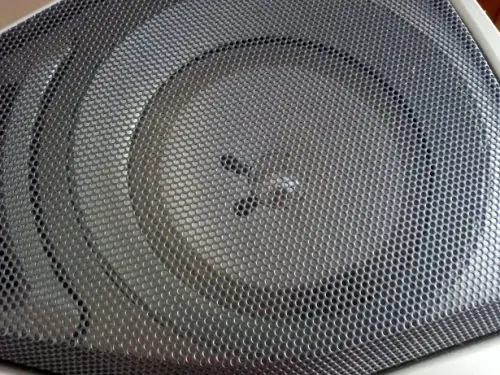
Speaker grill does not cause any damage
A speaker grill will not cause any damage (assuming you are using the speaker grill designed for the speaker itself). In fact, speaker grills are designed to prevent the speakers in your amplifier from further damage.
Potential damage to your speakers can come from UV rays from the sun, long-term dust accumulation, and even pets such as small cats or dogs. Speaker covers will be a huge help in stopping any potential damage.
Also Read: Covering Guitar Amp: Will Dust Damage It? (Taking Care Of Amp)
How To Remove Speaker Grill
In general, you can remove a speaker grill by following the steps below:
- Remove the screws and clips that are holding the cover in place. Put the screws in a small bag or get some scotch tape to tape them to the speaker temporarily so they are not lost later.
- Remove the attached grill frame. The frame is usually a wooden square with the cloth pulled across it (similar to how an artist’s canvas is stretched across the wooden frame used to make the painting).
- Remove the grill from the frame. This can be done by cutting off the speaker mesh with a razor blade or scissors. You may need to remove any nails or scissors previously holding the speaker grill to the frame.
- Apply the new mesh to the speaker frame. Make sure that the mesh is stretched neatly and snugly around the frame with no wrinkles. From there, go ahead and reattach the speaker covers with staples or small nails.
- Put speaker mesh back on by reversing this process.
Note: You should check the owner’s manual for the particular make and model of your guitar amplifier for the best possible directions to remove your grill speakers.
Should You Leave The Grills On Your Speakers?
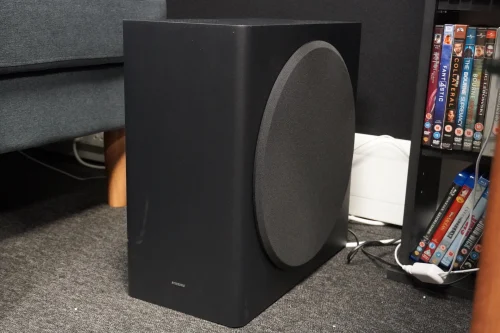
You can leave the grill installed on your speakers
You should leave the grills installed on your speakers because they are essential in protecting your speakers from any fine particles and the sun’s UV rays.
Grills on your speakers also offer other types of protection. The grills are a massive help if you have pets like cats or small dogs that could potentially stick their claws, paws, or fingers into the speakers.
If you insist on playing without the speaker covers, then gently wipe down any dust after each time you play it. I also suggest ensuring that the amplifier speakers are not exposed to direct sunlight. Place the speaker covers back onto the amplifier to protect it when you are not playing.
Conclusion
We went over several details regarding the speaker grills, such as what the grills on a speaker do, how sound is affected, the pros and cons of the speaker covers, the types of speaker covers, if the grills will cause any damage or not, how to remove the grill, and if you should leave the grill on the speakers or not.


